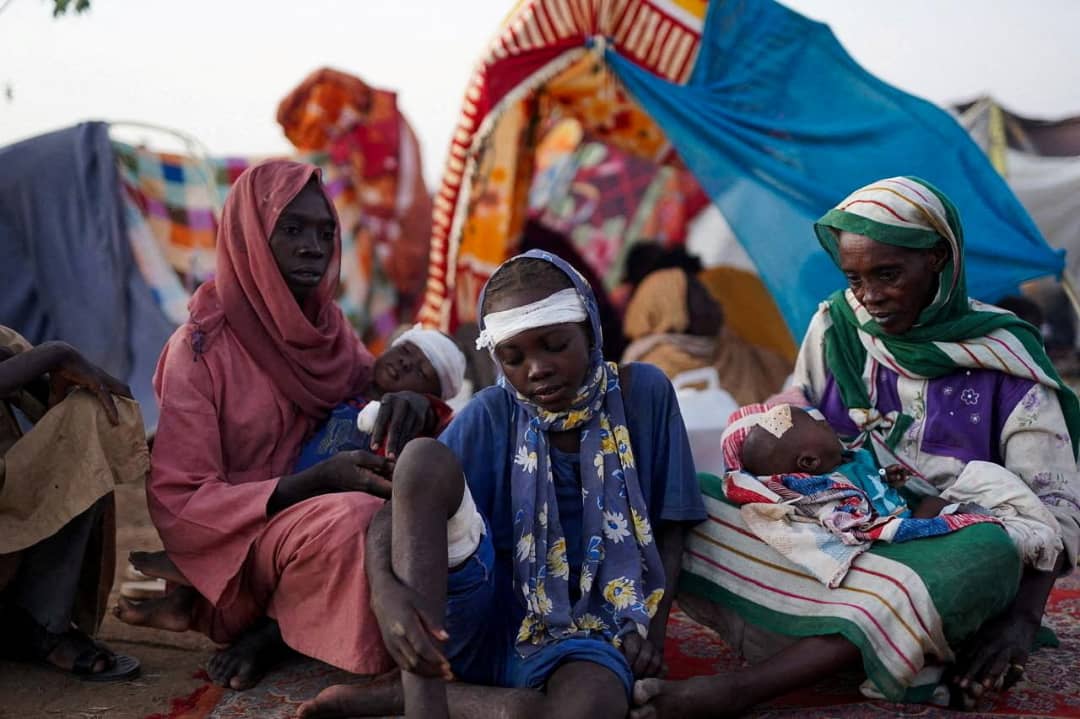A Sudanese woman displaced from her home recounted that paramilitary forces beat and shot men as they tried to flee from the long-besieged city of El Fasher in Darfur, after the forces seized full control of it. Her account has been corroborated by aid officials, satellite imagery, and unverified videos shared on social media.
With the fall of El Fasher — the Sudanese army’s last major stronghold in the Darfur region — to the Rapid Support Forces (RSF) last Sunday, Ikram Abdelhamid, along with four members of her family, including her grandson, was among thousands of civilians trying to escape.
In an audio recording obtained by Reuters after she reached a nearby town under neutral control, Ikram gave a rare firsthand testimony of the RSF’s takeover of El Fasher, where phone networks have been cut off.
Aid groups and activists have warned of potential ethnically motivated revenge attacks after the RSF defeated the army and allied fighters, many of whom belong to the Zaghawa ethnic group.
The RSF’s victory — following an 18-month siege — has solidified its control over Darfur, where it has previously been accused of ethnically driven massacres. Analysts say the takeover also entrenches the de facto division of Sudan between two rival governments and may embolden the RSF to expand its control further.
The war between the RSF and the Sudanese army, now in its third year, has created what the United Nations calls the world’s worst humanitarian crisis. El Fasher, already suffering from famine, has endured drone attacks targeting hospitals and civilian areas.
“They were shooting in front of us and behind us”
A local journalist obtained Ikram’s testimony, verified photos she shared, and previously provided Reuters with accurate information. In a media statement, the political coalition aligned with the RSF questioned the authenticity of videos and claims of human rights abuses but said it would launch an investigation.
Ikram said she fled to the town of Tawila with her four relatives, all of whom were injured during the long siege and bombardment of El Fasher.
> “We were running, and they were chasing us, firing rockets in front of and behind us,” she said.
Amid the chaos, she lost track of her husband. She described being stopped at an earthen checkpoint set up by the RSF around the city, where men were separated from women.
> “They lined up the men and said they wanted soldiers. When no one raised their hand, one RSF fighter picked some of them — they were beaten and shot in front of us.”
The women were taken to the other side of the checkpoint, where they heard more gunfire and screams before being told to leave.
> “The soldiers ordered us to move on, saying the men would follow, but we never saw them again,” she said.
The RSF has not responded to requests for comment, though its leaders have insisted that civilians in El Fasher are protected.
Satellite images confirm the horror
Ikram’s account matches videos reportedly filmed during the city’s fall, though Reuters could not verify them due to the lack of identifiable landmarks. The footage showed young men being questioned about whether they were fighters before being shot at close range.
Her testimony also aligns with satellite images released by Yale University’s Humanitarian Research Lab, showing multiple clusters of human-sized bodies surrounded by red stains — likely blood — near RSF checkpoints and other parts of the city.
The UN humanitarian team in Sudan said in a statement:
> “We are appalled by credible reports of widespread violations, including summary executions, attacks on civilians along escape routes, home raids, and barriers preventing people from reaching safety.”
Illness and starvation amid siege
Ikram said her two-month-old grandson, whose parents were killed during earlier attacks, became ill after being fed rotting animal feed. She was only able to give him milk once in the two weeks since his mother’s death, resorting to feeding him oral rehydration solution until they reached Tawila. Photos verified by Reuters showed an IV drip inserted into the baby’s arm and a bandage on his back.
According to Doctors Without Borders (MSF), examinations of people arriving from El Fasher last week to Tawila — which hosts 800,000 displaced people, mostly from El Fasher and the nearby Zamzam camp — revealed that 75% of children suffer from chronic malnutrition, and 26% from severe acute malnutrition.
The International Organization for Migration (IOM) reported that more than 26,000 people fled El Fasher last Sunday and Monday, but fewer than 2,000 reached Tawila, while an estimated 250,000 remain trapped inside the city.
